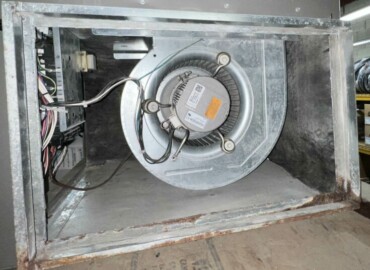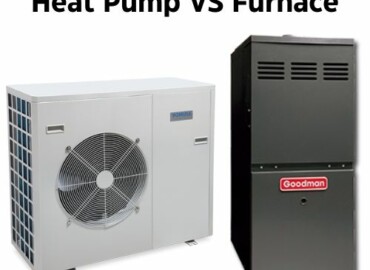How Often Should You Change Your Furnace Filters?
Your furnace is a critical component of your home’s HVAC system, providing heat during colder months. To ensure it runs efficiently, it’s essential to take care of its filters. Furnace filters play a crucial role in maintaining the proper functioning of your furnace and keeping your home comfortable.
How Often Should You Change Your Furnace Filters?
Experts recommend changing your furnace filter every 1-3 months, depending on the type of filter and the level of use. Neglecting to change your filters regularly can lead to decreased HVAC efficiency, increased energy bills, and even damage to your furnace.
Why is changing furnace filters important for the health of the furnace?
A furnace filter is designed to remove impurities from the air that is circulated through your HVAC system. Over time, these impurities can accumulate on the filter, clogging it and reducing the airflow to your furnace. This can lead to several problems:
- Reduced efficiency: When a furnace filter is clogged, it restricts the flow of air to the furnace. This can cause the furnace to work harder to circulate air, leading to reduced efficiency and higher energy bills.
- Increased wear and tear: A clogged filter can also cause increased wear and tear on your furnace. The furnace may have to run for longer periods of time or at higher speeds to circulate air, putting extra strain on its components and reducing its lifespan.
- Poor indoor air quality: A dirty filter can also lead to poor indoor air quality. Impurities that would normally be filtered out can circulate through your home, potentially impacting your health and the health of your family.
- System breakdowns: In extreme cases, a clogged filter can cause your furnace to overheat and shut down. This can lead to costly repairs and downtime for your HVAC system.
Factors that affect the filter change frequency
Filter type: The frequency of filter changes depends on the type of filter you use. For instance, disposable fiberglass filters need to be replaced every 1-3 months, while a washable metal filter can last for several years.
- Home size: Your home’s size is a factor in determining the filter change frequency. A larger home requires more frequent changes as the HVAC system needs to work harder to regulate the temperature.
- Household occupants: The number of people in your home also affects the filter change frequency. A larger household with more inhabitants generates more dust and allergens, leading to a quicker clogging of the filter.
- Presence of pets: If you have pets, you will have to change your filter more frequently as pet hair and dander can clog the filter quickly.
- Air quality issues: If anyone in your household has allergies or respiratory problems, you may want to change the filter more often to maintain the clean air quality in your home.
- HVAC system usage: The frequency of usage of your HVAC system can also impact the filter change frequency. If you frequently use your HVAC system, you may need to change the filter more often.
Signs It’s time to change your furnace filter
Elevated levels of Dust and Allergens in the House: The primary purpose of a furnace filter is to trap dust, dirt, and allergens. If you observe an increase in the quantity of dust or allergens in your home, it may signify that your filter is full and needs to be swapped.
- Poor Air Circulation: If you notice that the air from your furnace isn’t blowing as strongly as it used to, it might mean that your filter is clogged. A clogged filter restricts airflow, making it challenging for your furnace to circulate air efficiently.
- Unexpected Increase in Energy Bills: If your energy bills seem to be growing for no apparent reason, it could be caused by a clogged furnace filter. A clogged filter makes it harder for your furnace to circulate air, causing it to work harder and use more energy.
- Inconsistent Heating or Cooling: If you observe that some rooms in your home are not heating or cooling evenly as they used to, it might indicate that your filter is clogged. A clogged filter restricts airflow, causing some rooms to receive less heat or cooling than others.
It’s crucial to be mindful of these signs and replace your furnace filter as required to guarantee that your furnace operates smoothly and efficiently. Regular filter changes can also improve the air quality in your home and protect your health by trapping dust, dirt, and allergens.
How to change your furnace Filter
To change your furnace filter, follow these steps:
- Locate the filter: Your furnace filter can usually be found near the blower or air handler, or in the return air duct.
- Turn off the furnace: Turn off your furnace and wait for it to cool down before changing the filter.
- Remove the old filter: Take out the old filter by releasing it from the side of the furnace or unfastening it from the frame.
- Measure the size: Measure the size of the old filter to make sure you get the correct replacement size.
- Install the new filter: Install the new filter by inserting it into the same slot where the old filter was located and securing it in place.
Safety considerations
When changing your furnace filter, consider the following safety precautions:
- Wear gloves to protect your hands from any dirt or debris in the furnace.
- Do not touch the furnace elements, as they may be hot and cause injury.
- Be mindful of sharp edges on the furnace or filter frame to avoid cuts.
Conclusion
It’s essential to take care of your furnace filter for the well-being of your heating, ventilation, and air conditioning (HVAC) system and the air quality in your home. By frequently changing the filter, you can guarantee that your furnace runs smoothly and efficiently.
The necessary frequency for filter changes will depend on various factors. Households with pets or strong allergies should change their filters every 1-3 months, while most households can change them every 6 months. Homes with low HVAC usage and no air quality issues only require a yearly filter change.
Swapping out your furnace filter on a regular basis is a straightforward way to maintain the health of your HVAC system and enhance indoor air quality. Be sure to replace your filter consistently to enjoy optimal HVAC performance and cleaner air in your home.



